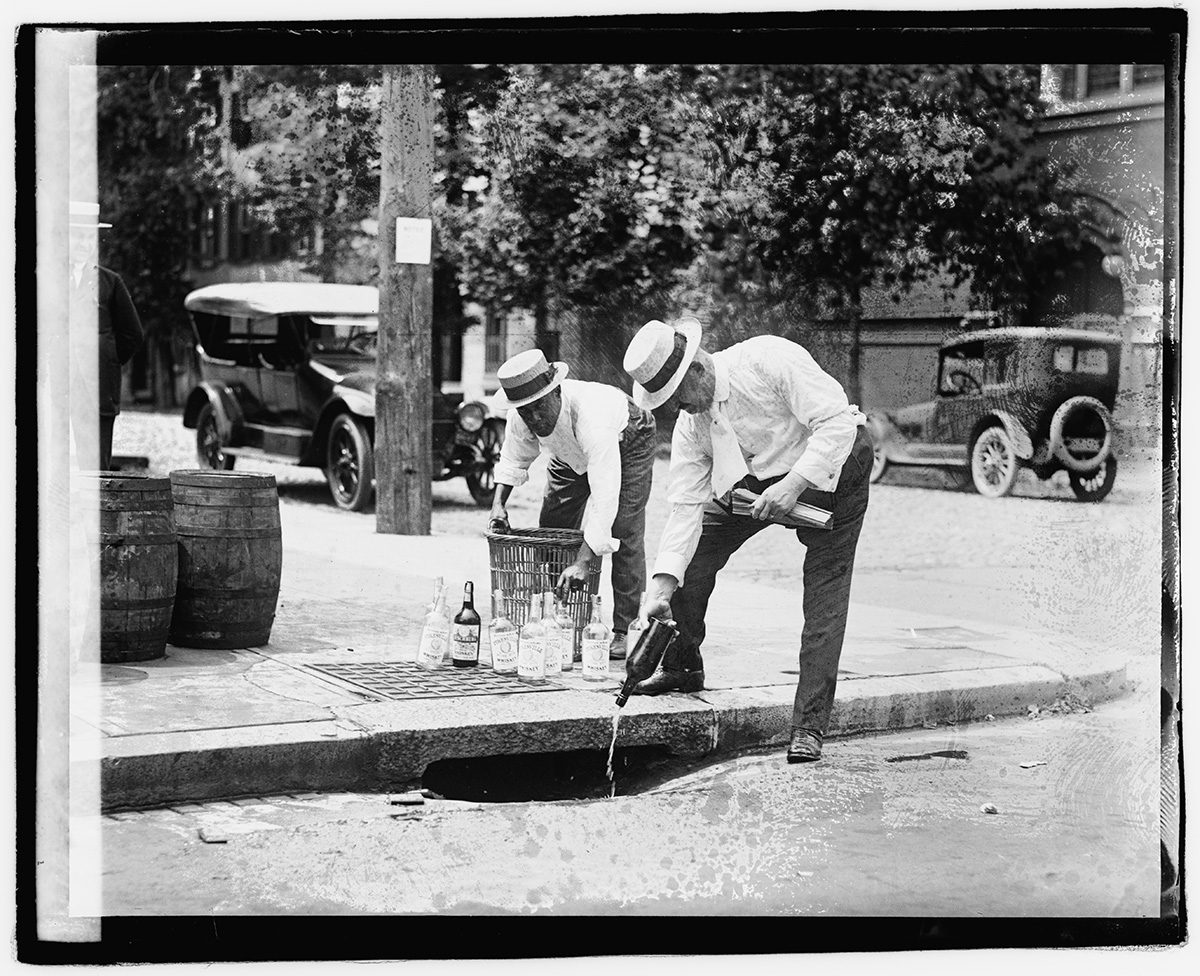Did Prohibition Extend Lifespans?
A UW study examines data from both wet and dry counties.

Recent advances in data analysis allowed the researchers to gain new insights about the impact of 100-year-old laws. PhotoQuest
A new study found that people who were born in “dry” counties during the Prohibition era lived an additional 1.7 years, compared to those born in “wet” counties. Because parts of the United States became dry through state and federal regulation at different times between 1900 and 1930, data from this period provided a natural basis for comparison.
Jason Fletcher MS’03, PhD’06 of the La Follette School of Public Affairs is a coauthor on the study, which was the first to look at the long-term effects of Prohibition on longevity.
“Researchers now understand that exposures during pregnancy, due to interruptions to fetal development, can have long-term cascading effects on later-life health,” Fletcher says. He adds that recent advances in data analysis allowed the researchers to gain new insights about the impact of 100-year-old laws.
The findings could have implications for public health policy during a time when the number of mothers who drink during pregnancy has risen from 9.2 percent in 2011 to nearly 14 percent in 2022.
Published in the Summer 2024 issue



Comments
No comments posted yet.